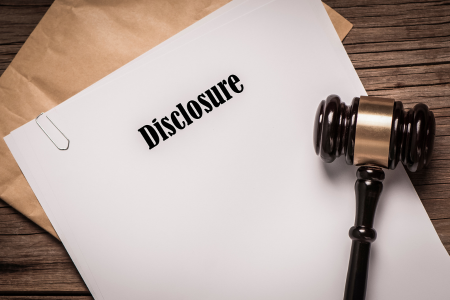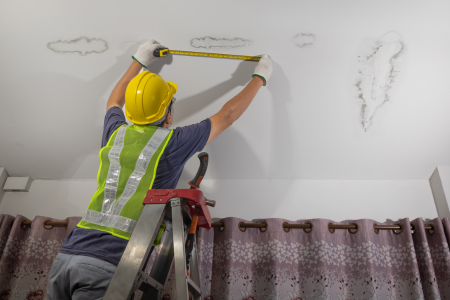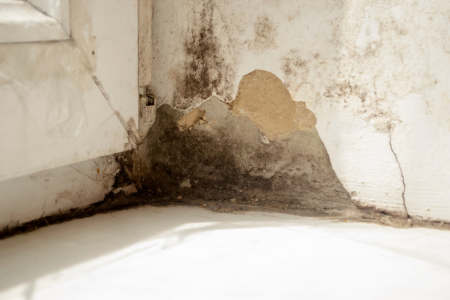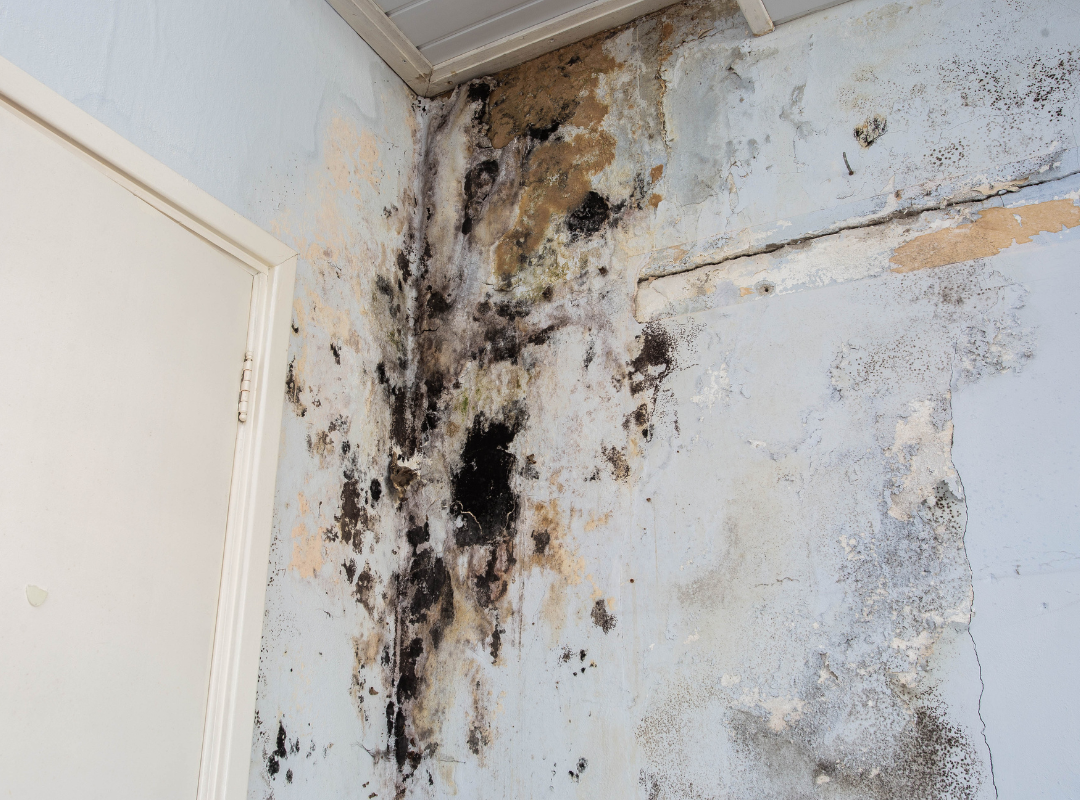Selling A Home With Mold In Massachusetts: What You Need to Know
Selling a house with mold in Massachusetts involves understanding local property laws, mold remediation costs, and the potential impact on property value. Genuine House Buyers can help you navigate these challenges.
TABLE OF CONTENTS
- Why Selling a House with Mold in Massachusetts Matters
- Legal Considerations When Selling a Home with Mold
- How Mold Affects Property Transactions in Massachusetts
- Preparing Your Massachusetts House for Sale with Mold Issues
- Marketing Strategies for Homes with Mold
- Alternative Selling Options for Moldy Homes in Massachusetts
- Negotiation Tips for Selling Mold-Compromised Properties
- FAQs When Selling a House with Mold in Massachusetts
- Insights of Selling a House with Mold
Why Selling a House with Mold in Massachusetts Matters
Selling a house with mold can be tough, especially in Massachusetts where buyers and laws are strict about property conditions. Knowing these factors is key for anyone wanting to sell their property.
What Are the Buyer Concerns?
Homebuyers in Massachusetts often worry about mold because it can affect health and lower the property’s value. Here’s what sellers should know:
How does mold affect buyer interest?
- Property Value Impact: Mold can lower a home’s value. Buyers may avoid homes with mold due to the costs of fixing it.
- Buyer Awareness: Many buyers do detailed home inspections to look for mold and other issues. This leads to requests for repairs or price cuts.
- Health Concerns: Mold isn’t just ugly; it can cause health problems. Buyers worry about issues like breathing problems from mold exposure.
How do buyers view mold remediation efforts?
- Mold Remediation Requirements: In Massachusetts, it’s often needed to fix mold issues before selling. This makes buyers feel more confident in the purchase.
- Real Estate Negotiations: Mold can change the terms of a sale. Buyers might want lower prices or professional mold removal before agreeing to buy.
- Seller Obligations: Sellers must tell buyers about mold problems. Failure to do so could result in legal troubles.
Legal Considerations When Selling a Home with Mold

Understanding the law is important when selling a home with mold in Massachusetts. Knowing your responsibilities can prevent legal issues.
What Are Massachusetts’ Mold Disclosure Laws?
Grasping the real estate disclosure laws in Massachusetts is essential:
- Disclosure Requirements: Sellers must reveal any known mold issues according to Massachusetts law. This honesty protects both parties in the deal.
- Compliance and Liability: Following these laws is very important. Ignoring them could lead to fines or legal trouble. While “caveat emptor” (buyer beware) applies, it doesn’t free sellers from disclosing known problems.
Are there penalties for non-disclosure?
- Seller Responsibilities: If sellers don’t disclose mold, they can face serious legal trouble. They might have to pay fines or even take back the house.
- Massachusetts Residential Mold Laws: These laws are strict. Sellers should get legal advice to follow the rules and avoid being sued.
How detailed should mold disclosure be?
- Mold Hazard Disclosure: It’s important to fully document any mold issues. This should be detailed to prevent any misunderstandings.
- Legal Standards: Meeting legal standards keeps the seller credible and honest during the sale process.
By understanding these points, sellers can better handle the challenges of selling a house with mold in Massachusetts. Consulting with experts can provide valuable guidance and support.
How Mold Affects Property Transactions in Massachusetts
Understanding how mold issues influence property transactions in Massachusetts is crucial for both buyers and sellers. Here, we explain the impact of mold on home appraisal and provide guidance on preparing a house with mold problems for sale.
What Is the Impact on Home Appraisal?
Mold can greatly affect the appraisal value of a home. In Massachusetts, where the real estate market is competitive, knowing how mold impacts property value is important. Below, we look at how mold concerns are handled during appraisals and what adjustments might be needed.
How does mold influence property value?
- Decreased Value: Mold can lower a home’s value because of health risks and the need for cleanup. Buyers might be scared off by these issues, leading to lower offers.
- Mold Remediation Costs: In Massachusetts, cleaning up mold can be expensive. The extent of mold damage often determines the cost, which affects the property’s selling price.
- Disclosure Laws: Massachusetts real estate disclosure laws require sellers to report known mold issues, which can affect deals and lower market value.
Can mold issues be covered in appraisal adjustments?
- Appraisal Adjustments: Appraisers might lower a home’s value to account for mold problems, reflecting cleanup costs and reduced buyer interest.
- Real Estate Negotiations: Mold issues often lead to renegotiation, with sellers needing to lower prices or offer credits for mold cleanup.
- Building Codes: Knowing Massachusetts building codes about mold is important, as compliance affects both appraisal and property value.
Preparing Your Massachusetts House for Sale with Mold Issues

Selling a house with mold can be tough, but with proper preparation, you can tackle these challenges effectively. Here’s what homeowners in Massachusetts should consider when preparing a property with mold issues for sale.
What Steps Should Sellers Take First?
To sell a home with mold successfully, certain steps are key:
- Massachusetts Home Selling Guidelines: Learn about state-specific guidelines regarding mold, including seller obligations and disclosure requirements.
- Preliminary Mold Inspection: Doing an initial inspection can help identify the severity of mold issues and clarify necessary cleanup efforts.
- DIY Solutions: For small mold problems, homeowners might try safe and effective DIY solutions, although professional advice should guide these efforts.
Should homeowners conduct a preliminary mold inspection?
- Importance of Inspection: A preliminary mold inspection can uncover unseen issues that might complicate a sale. Using a reputable company ensures a complete assessment.
- Informed Sellers: Knowing the extent of mold problems allows sellers to disclose accurately and avoid possible legal issues under Massachusetts law.
- Mold Awareness: Educating yourself about mold hazards is key. Awareness helps comply with Massachusetts mold hazard disclosure requirements.
It’s important to know your responsibilities in addressing mold before listing your property. Proper cleanup shows your commitment to maintaining home safety. Following Massachusetts residential mold laws not only ensures safety but also makes real estate transactions smoother by reducing potential buyer concerns.
By following these steps and understanding mold’s effects on property transactions, sellers can better manage the challenges posed by mold issues. If you’re a homeowner looking to sell a property with mold problems, contact Genuine House Buyers to explore your options and get expert help with your home sale.
Marketing Strategies for Homes with Mold
Selling a home in Massachusetts that has mold issues can be tough. However, with the right marketing strategies, it is possible. Focus on mold remediation and make sure to disclose any mold issues to build buyer trust during the property sale.
How to Present a Mold-Affected House Positively?
In Massachusetts real estate, presenting a house with mold requires careful planning. Here are some helpful tips for selling a home:
- Emphasize Transparency: Be upfront about any mold issues with potential buyers. Full disclosure builds trust.
- Highlight Remediation Efforts: Show any mold remediation work done. Provide documentation from certified professionals to reassure buyers of the property’s safety.
- Focus on Benefits: Point out parts of the house not affected by mold or improvements made after remediation.
How Can Transparency Benefit the Selling Process?
Being transparent is a powerful tool in real estate transactions involving mold:
- Builds Buyer Trust: Buyers are more likely to move forward if they feel informed.
- Ensures Compliance: Following Massachusetts mold liability laws and being open about mold issues helps avoid legal problems.
- Facilitates Seller Responsibility: Showing accountability with detailed mold disclosure boosts buyer confidence in the seller’s honesty.
Alternative Selling Options for Moldy Homes in Massachusetts

If you’re planning to sell a home with mold damage in Massachusetts, consider alternatives like as-is sales or accepting cash offers. Each choice has benefits and drawbacks, so understanding them helps you decide what’s best for your situation.
What Are “As-Is” Sales and Cash Offers?
“As-is” sales mean selling your property without making repairs. This is ideal if your home has mold issues. Cash offers involve buyers paying upfront, avoiding lengthy mortgage processes. In Massachusetts, these options can lead to quicker and more convenient sales.
What Are the Pros and Cons of As-Is Sales?
Selling a home as-is comes with positives and negatives:
Pros:
- Quick Sale: The type of transactions are way faster.
- No Repair Costs: You don’t have to pay for mold remediation.
Cons:
- Lower Offers: Buyers might offer less due to the risks.
- Mold Disclosure: You must tell buyers about any mold issues, which could turn some away.
In Massachusetts, finding the right balance is key to a successful sale.
Negotiation Tips for Selling Mold-Compromised Properties

When selling mold-compromised homes in Massachusetts, good negotiation is important. Try these tips:
- Transparency: Be open about mold issues to earn trust.
- Flexible Pricing: Be willing to adjust the price based on buyer feedback.
How to Approach Price Negotiations?
Negotiating prices for homes with mold can be tough. Here’s how to handle it:
- Assess Property Value Impact: Know how mold affects a home’s value in Massachusetts.
- Consider Buyer Offers Carefully: Weigh offers while thinking about potential repair costs.
Should Sellers Offer Remediation Credits?
Offering remediation credits can attract buyers in Massachusetts. These credits help cover mold removal costs, easing buyer worries. To make this approach work well, be sure to follow local mold laws.
FAQs When Selling A House With Mold in Massachusetts
How can mold affect the value of my home in Massachusetts?
Mold can lower your home’s value in Massachusetts because buyers may worry about health risks and repair costs. Fixing mold problems before selling can help keep your home’s value up.
What are some tips for selling a house with mold in Massachusetts?
To sell a house with mold, get a professional assessment and cleaning. As Massachusetts law requires, disclose any mold issues. You might also consider selling the home “as-is” if fixing the mold is too expensive.
What legal responsibilities do I have regarding mold when selling my home in Massachusetts?
In Massachusetts, you must tell buyers about any known mold issues when selling. Not doing so can cause legal trouble. Be honest with buyers about mold and any cleanup you’ve done.
How does mold impact health, and what should sellers know?
Mold can lead to breathing problems, allergies, and other health issues. Sellers should clean up mold quickly, especially in homes with kids or elderly people, to reduce health risks.
Can I sell my house with lead paint and mold issues in Massachusetts?
Yes, you can sell your house with lead paint and mold, but you must tell buyers about these problems. You might want to talk to an attorney for advice on disclosing these issues and possibly lowering the sale price for repairs.
What documents do I need when selling a home with mold in Massachusetts?
You’ll need a mold disclosure statement, inspection reports, and proof of any cleanup efforts. A checklist can help ensure you’re ready before putting your home on the market.
Why might I consider selling my home quickly for cash in Massachusetts?
If you have mold, debt, or health problems, selling for cash might be a good idea. It lets you avoid long repairs and move on without delays.
Insights
- Get expert advice on selling your home for sale across Massachusetts, including areas like Boston, Medford, Swampscott, and Saugus. We ensure you follow local legal rules.
- Learn how mold affects property value in Massachusetts. Our team offers tips on mold cleanup advice and understanding legal standards.
- Understand your responsibilities as a homeowner regarding mold in Massachusetts, including mold hazard disclosure and legal guidelines.
- Find out how mildew and mold, often found in bedrooms or near septic systems, can impact your home sale. Learn key steps to address these issues.
- Discover the benefits of having a tidy landscape to make your home more appealing, especially in competitive markets like Massachusetts.
- Stay updated on how technology and professional staging can help sell your home faster. We answer common questions and offer solutions.
- Learn how a lawyer can protect your interests when dealing with mold issues in Massachusetts and ensure you meet all legal requirements.
- Gain the know-how to manage the challenges of selling a home with mold, using strategies to reduce its impact.
- Contact us today for a detailed consultation. Let Genuine House Buyers help you maximize your property’s potential.
Genuine House Buyers buys properties in any condition and guarantees an easy and smooth transaction. Call us at (401) 313-5099. We will buy your house with no hassles. You don’t have to worry about anything when you work with us; we take care of everything. We buy houses across Massachusetts, including Attleboro, Webster, Fall River, Easton, and Norton.
Contact us to learn more about how we work, or fill out the form below to get an offer for your house.

